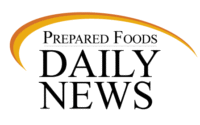China Regulators Think Preemptively
"It means we will try to rid food problems by early detection, early warning and early intervention," said Su Zhi, deputy general director of health inspection and supervision bureau under the Ministry of Health.
Illegal chemicals added into food have led to several major food scares in China. Despite frequent government crackdowns, illegal non-food substances remained a threat.
In the latest scandal, milk powder and other dairy products containing the industry chemical melamine sickened more than 294,000 infants and likely killed six.
Su said the "preemptive" monitoring system" will include a monitoring network on food manufacturing and distribution with focus on food additives and non-food substances.
"Enterprises must list what they've added into the food products. Except for food additives, it is illegal to add any other non-food substances no matter whether they are harmful or not," he told Xinhua.
The system will also include a monitoring network on foodborne diseases, blacklists of illegal food additives, building of a competent technician team and a transparent reporting system, he said.
Su said the "preemptive" approach, proposed by China's Health Minister Chen Zhu, was based on lessons from the tainted dairy scandal.
"We used to rely on crackdowns (to solve food problems)," he said, "but now we are combining punishment with prevention with more stress on the latter."
On December 15, the Ministry of Health published a blacklist of 17 non-food substances that could not be added to food production, including melamine and industrial dye sudan red used to color egg yolks.
Su said the Ministry will continue to blacklist illegal additives. "The purpose is to encourage public supervision," he said.
China has approved a total of 1,812 types of food additives, including 290 food additives, 1,528 spices, 149 food processing auxiliary materials and 55 chewing gum bases, according to a food additive standard effective since June.
From the January 5, 2009, Prepared Foods e-Flash
Looking for a reprint of this article?
From high-res PDFs to custom plaques, order your copy today!




